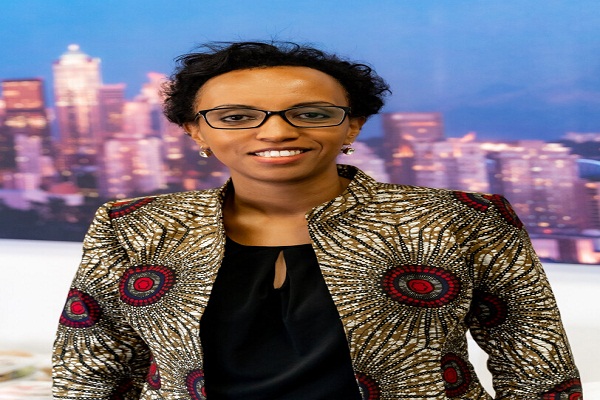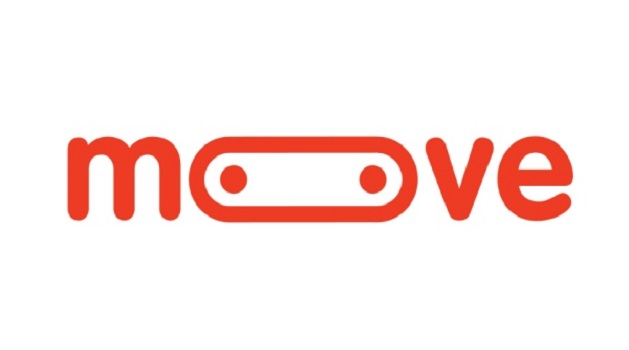General News
Partnerships in Times of Crisis

By Amrote Abdella, Regional Director, Microsoft 4Afrika Initiative,
The current global crisis has highlighted a number of areas, from the need of efficient information management to the need of accurate data gathering for faster medical response. In looking at the role of technology during this period, one area that has stood apart in driving meaningful change is the role of partnerships.Today, more than before, Microsoft 4Afrika is steadfast in supporting healthcare partners across the continent as they adapt their platforms and services to meet current needs.
Microsoft, through its 4Afrika initiative, has formed strategic partnerships with healthcare providers throughout Africa and beyond, providing them with technical support and business consultancy to help them achieve their goals. Each of these healthcare providers has had a significant impact in their sphere of influence, but with the onset of the Covid-19 pandemic, we’ve seen how our partners have used their existing platforms and programmes to pivot and adapt existing technologies to rapidly provide the much-needed response to address the challenges of the pandemic.
Healthcare powered by big data
Artificial intelligence and machine learning are already used in healthcare, but in a rapidly evolving situation, these tools can significantly help boost response times and preparedness.
When Microsoft 4Afrika firstpartnered with BroadReach,they were striving to create and implement data-driven solutions to improve the management and delivery of health programmes in underserved regions around the world. Vantage, an integrated cloud platform powered by Microsoft solutions, delivers powerful analytics that helps development, health and human services organisations quickly identify risks and opportunities.
Using machine learning, AI, big data and cloud computing, the company has enabled significant health outcomes in supported districts, integrating data immediately from a wide range of sources, and delivering real-time data, actionable insights and step-by-step implementation guidelines to boost effectiveness. Their digital HIV Portfolio on Management Solution has helped an estimated 340,000 people access HIV treatment in KwaZulu-Natal, South Africa, while their proactive predictive tool helps keep patients on treatment by predicting which patients are at risk of stopping medicines and empowering healthcare teams to reach out to them before they stop. Other types of predictive analysis help develop an understanding of how particular clinics and staff members are performing, medical stock levels and predicting what may happen and intervening before that happens.

During the Covid-19 crisis, BroadReach has moved quickly to repurpose its existing platforms. The company has used its cloud services, built on Azure, to rapidly gather data from thousands of health workers in the field and instantly upload it into Vantage, where advanced analytics are giving leaders key guidance to manage and prepare for the impact of the pandemic.
In healthcare, quick response times save lives.BroadReach has produced a facility readiness survey that allows government to redirect resources to prioritised hospitals and facilities, so that they have the right equipment and medical supplies on hand. Predictive analysis can be used to help forecast and track outbreak hotspots.
Partnerships like the one with BroadReach demonstrate the significant value that technology can deliver in situations that are rapidly changing and require high volumes of data from disparate sources to be quickly analysed for use in prediction and preventative measures.
Keeping healthcare facilities safe
Our partner Raphta has worked with Microsoft to develop software and hardware solutions that allow contactless biometrics which can be used for access control to facilities, among other things. Of course, during a pandemic where the virus can be transmitted on surfaces, contactless access assumes a far greater importance. Raphta is now offering its Shuri Face Contactless Biometrics solution to hospitals, clinics and buildings for thermal screening and containment, limiting contact and virus spread. Using current AI facial recognition software and hardware technology developed by Raphta and having quickly added the necessary thermal imaging technology, the company is now running pilot projects at the Netcare Gardens Hospital in Johannesburg, South Africaand at Kenyatta Hospital in Nairobi, Kenya.
Using technology to reach out
Telemedicine is another area where technology is enabling safer diagnosis and limiting unnecessary contact between patients and healthcare providers. Globally, the use of telemedicine has been surgingduring the current pandemic.
In Pakistan, we’ve seen first-hand the benefits of telemedicine in reaching patients who have limited access tohealthcare and healthcare workers.Sehat Kahani, an e-health start-up supported by 4Afrika usesMicrosoft platforms to provide patients who are far from healthcare centres with access to qualified doctors via a telemedicine platform, while cloud computing services mean that their patient records are immediately available anywhere using a mobile device.
Telemedicine can perform a vital role in enabling people to access healthcare services, remote diagnoses, and treatment plans. During the Covid-19 crisis, Sehat Kahani is using its smartphone app to provide virtual consultationsto patients across Pakistan, delivering educational content about the pandemic, and helping to direct them to the correct healthcare facilities if necessary. Using its telemedicine platform, it has educated more than a million users about the virus, andprovided more than 6,000 online consultations with patients.The company currently has more than 160 female doctors working non-stop to support citizens through this health crisis.

Bringing positive change in difficult circumstances
It’s encouraging to see how technology can support the humanitarian healthcare goals of countries across the globe, and how leading technology companies can support and enable healthcare partners to provide better, faster and more accurate treatment.Seeing how technologies can be adapted to work best in an emerging crisis shows the value of investing in these partnerships to help develop these platforms and services.
The clear challenge in Africa is bridging the gap in healthcare and providing equal access for all. By working with our partners across the African continent and beyond, we can see how technology is having a powerful impact on providing healthcare to the communities and countries who need it the most. Partners working together always provides more muscle through collaborationand we’ve seen technology allow our partners to scale, broadening their reach and subsequently have greater positive impact even in the current challenging, uncharted times.
About Amrote Abdella
As the Regional Director of Microsoft’s 4Afrika Initiative, Amrote Abdella spearheads Microsoft’s investments in Africa across 54 countries. She works closely with the internal teams in the Middle East and Africa – and globally – to enable and accelerate digital transformation opportunities across the continent.
Before becoming Regional Director, Amrote was 4Afrika’s Director for VC & Startups, where she worked closely with startups supporting the innovation ecosystem in Africa.
Prior to joining Microsoft, Amrote worked with the World Economic Forum in Geneva, as an Associate Director for Africa. She also served as a Financial Analyst at the World Bank in Washington, and worked in micro-finance with the Global Hunger Project, an NGO based out of New York. Here, she oversaw projects across eight countries in Africa and worked with African women farmers, driving financial inclusion.
In 2017, Amrote was named one of Africa’s Top 100 Young Business Leaders, ranking 12th out of 100 leaders under 40 who are playing a major role in driving the continent’s economic development. In 2019, she appeared on the same list, this time ranking 10th. In 2018 and 2019, she was also recognized by Jeune Afriqueas one of the top 50 influential leaders shaping digital evolution and supporting start-ups in the African continent.
Amrote constantly strives to learn new skills and believes in the values of passion, ambition and hard work. She also encourages all young women to have a grounding in STEM subjects.
Amrote holds a Masters degree in International Economic Development from the Heller School at Brandeis University in Massachusetts, and a Bachelor of Arts from Davidson College in North Carolina.
General News
Cybervergent Selected as World Economic Forum’s 2025 Technology Pioneer Company

In affirmation of its global standing, Cybervergent, a Pan-African technology company that leverages artificial intelligence to transform how organisations manage risk, governance, privacy, and cybersecurity, has been selected as one of the World Economic Forum’s (WEF) Technology Pioneers for 2025—a global cohort spotlighting companies transforming industries through breakthrough technologies and responsible innovation.

The WEF, an international organisation committed to improving the state of the world through public-private collaboration, brings together global leaders to shape economic, technological, and societal agendas. Cybervergent now joins this global community.
The company is recognized for its innovative approach to building digital trust, reimagining how organisations manage cybersecurity, risk, privacy and governance.
Commenting on the company’s milestone, Adetokunbo Omotosho, CEO of Cybervergent, said, “I am honoured that Cybervergent has been named a Technology Pioneer by the World Economic Forum. This is more than an accolade — it’s a validation of our commitment to redefining cybersecurity, privacy, and risk management to build true digital trust.
“What makes this recognition even more meaningful is the fact that Cybervergent demonstrates innovation in AI and infrastructure can emerge from any region, challenging conventional perceptions.”
Some past recipients of the Technology Pioneer recognition, including Google, Spotify, and Airbnb have gone on to fundamentally reshape global industries.
As a member of the 2025 Technology Pioneers community, Cybervergent will be contributing to discussions shaping cybersecurity, AI, and cyber resilience across industries and the global digital economy.
General News
Moove Plans to Raise $1.2Bn Debt Round for US Autonomous Vehicle Expansion

Moove, an African mobility fintech startup, is on a quest to secure a $1.2 billion debt financing round to support the rollout of a fleet of autonomous vehicles.

This is in partnership with Alphabet Inc.’s Waymo in the United States, according to a Bloomberg report citing sources familiar with the matter.
The startup has since attracted backing, including from Uber Technologies Inc., and entered a strategic partnership with Waymo in December 2024 to provide financing for self-driving cars.
Ladi Delano, co-founder of Moove, noted that the company has a solid financial track record.
“Moove has built strong relationships with some of the world’s leading lenders. We have also fully repaid our first-ever debt facilities, which signals our maturity and marks a key milestone that demonstrates the strength of our platform as we enter the next phase of global autonomous-vehicle infrastructure deployment,” he said.
The round is reportedly oversubscribed, with strong participation from private credit firms and banks.
Waymo has also not made any official statement regarding the funding round. While final details are expected to be concluded in the coming weeks, the deal will mark a significant milestone for the firm as it ramps up its global ambitions.
Founded in 2020 by Nigerian entrepreneurs, Ladi Delano and Jide Odunsi, Moove began by providing vehicle financing for ride-hailing drivers in Africa’s largest cities.
General News
Firm Explores the Evolution of AI-powered Ransomware with Password-gated Capabilities

Kaspersky experts have revealed the inner workings of FunkSec — a ransomware group that illustrates the future of mass cybercrime: AI-powered, multifunctional, highly adaptive and operating on volume with ransoms as low as $10,000 to maximise profits.

Kaspersky’s Global Research and Analysis Team (GReAT) constantly monitors the ransomware threat landscape, where attacks continue to rise. According to the company’s latest State of Ransomware report, the share of users affected by ransomware attacks worldwide increased to 0.44% from 2023 to 2024, up by 0.02 percentage points.
While this percentage may appear modest compared to other cyber threats, it reflects the fact that attackers typically prioritise high-value targets rather than mass distribution, making each incident potentially devastating. Within this evolving landscape, FunkSec has emerged as a particularly concerning threat.
Active for less than a year since its emergence in late 2024, FunkSec has quickly surpassed many established actors by targeting government, technology, finance and education sectors. What sets FunkSec apart is its sophisticated technical architecture and AI-assisted development.
The group packages full-scale encryption and aggressive data exfiltration into a single Rust-based executable, capable of disabling over 50 processes on victim machines and equipped with self-cleanup features to evade defenses.
Beyond its core ransomware functionality, FunkSec has expanded its toolkit to include a password generator and a basic DDoS tool — both showing clear signs of code synthesis using large language models (LLMs).
FunkSec’s approach reflects the evolving landscape of mass cybercrime, combining advanced tools and tactics. Kaspersky’s GReAT experts highlight the key features that define their operations:
Password-Controlled functionality
GReAT experts discovered that FunkSec ransomware features a unique password-based mechanism that controls its operation modes. Without a password, the malware performs basic file encryption, while providing a password activates a more aggressive data exfiltration process in addition to encryption to steal sensitive data.
FunkSec packs full-scale encryption, local exfiltration and self-cleanup into a single Rust binary—without a side-loader or a companion script. That level of consolidation is uncommon and gives affiliates a plug-and-play tool they can deploy almost anywhere.
Use of AI in development
Code analysis shows that FunkSec is actively using generative artificial intelligence to create its tools. Many parts of the code seem to be automatically generated rather than manually written. Signs of this generic placeholder comments (such as “placeholder for actual check”) and technical inconsistencies, like commands for different operating systems that don’t align properly. Additionally, the presence of declared but unused functions—such as modules included upfront but never utilised — reflects how large language models combine multiple code snippets without pruning redundant elements.
“More and more, we see cybercriminals leveraging AI to develop malicious tools. Generative AI lowers barriers and accelerates malware creation, enabling cybercriminals to adapt their tactics faster.
By reducing the entry threshold, AI allows even less experienced attackers to quickly develop sophisticated malware at scale,” comments Marc Rivero, Lead Security Researcher at Kaspersky’s GReAT.
High-volume, low-ransom strategy
FunkSec demands unusually low ransom payments, sometimes as little as $10,000, and pairs this with the sale of stolen data at discounted prices to third parties. This strategy appears designed to enable a high volume of attacks, helping the group quickly establish its reputation within the cybercriminal underground. Unlike traditional ransomware groups that seek million-dollar ransoms, FunkSec employs a high-frequency, low-cost model — further underscoring its use of AI to streamline and scale operations.
Expands beyond ransomware
FunkSec has expanded its capabilities beyond the ransomware binary. Its dark leak site (DLS) hosts additional tools, including a Python-based password generator designed to support brute-force and password-spraying attacks, as well as a basic DDoS tool.
Advanced evasion
FunkSec employs advanced evasion techniques to avoid detection and complicate forensic analysis. The ransomware is capable of stopping over 50 processes and services to ensure thorough encryption of targeted files. Additionally, it includes a fallback mechanism to execute certain commands even if the user launching FunkSec lacks sufficient privileges.

 Telecom1 day ago
Telecom1 day agoMTN Nigeria Debuts Game-Changing CPaaS Platform at NextNow Forum

 Telecom2 days ago
Telecom2 days agoNCC Approves MTN, 9Mobile Roaming Collaboration Deal

 E-Financial1 day ago
E-Financial1 day agoNAICOM Issues New Licenses to SanlamAllianz Life, General Insurance

 E-Financial1 day ago
E-Financial1 day agoGTCO to Become First Nigerian Bank to List on London Stock Exchange

 E-Financial2 days ago
E-Financial2 days agoWorld Bank Approves Extra $65m for Nigeria’s SPESSE

 E-Business1 day ago
E-Business1 day agoDomain of Deception as Attackers Deploy Spyware Under Guise of Legal Threats

 News1 day ago
News1 day agoAMCON Confirms ₦100Bn Sale of Ibadan DisCo Amid Legal Disputes

 E-Financial2 days ago
E-Financial2 days agoEcobank Taps Google Cloud to Deepen Financial Inclusion




























